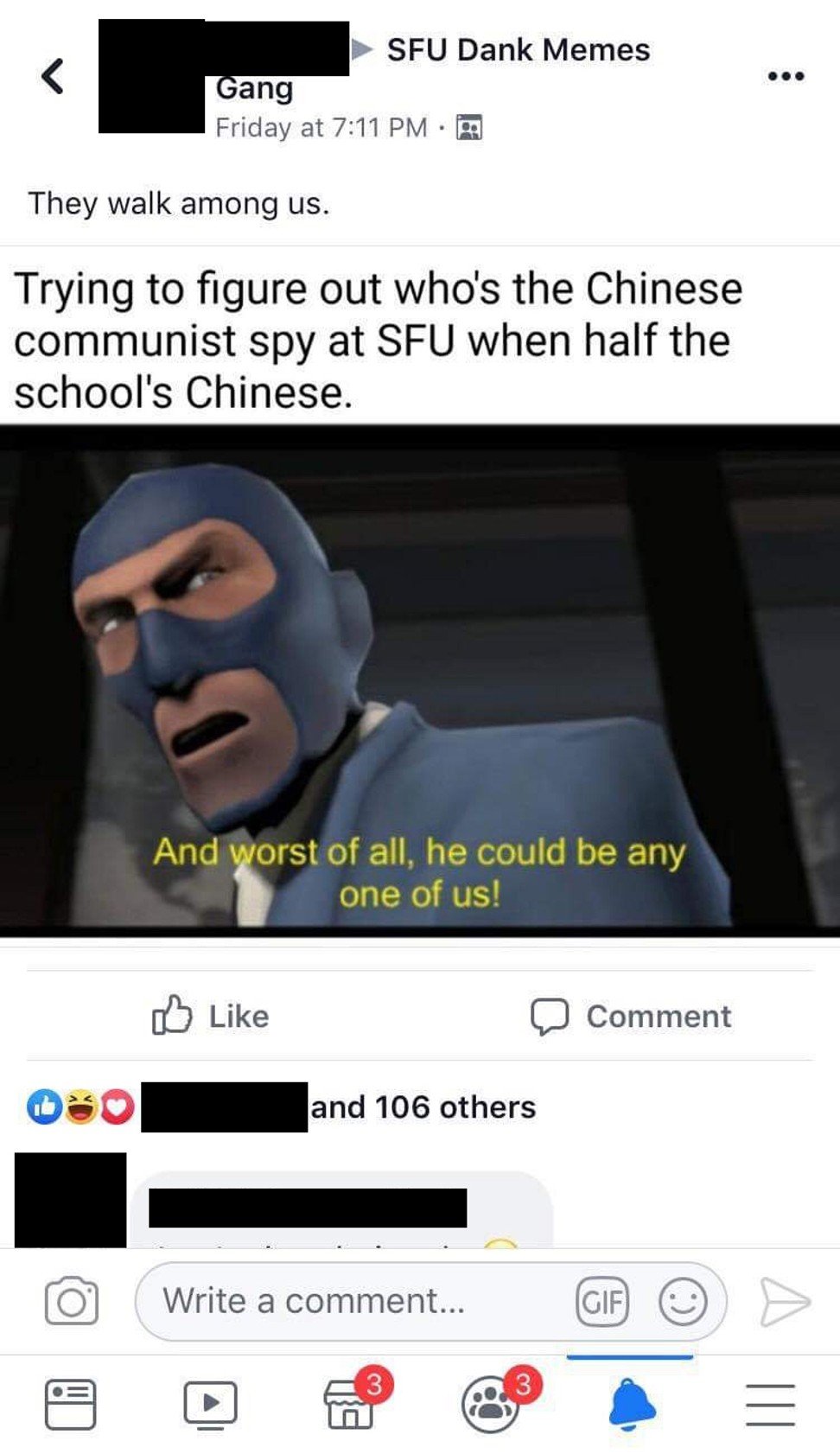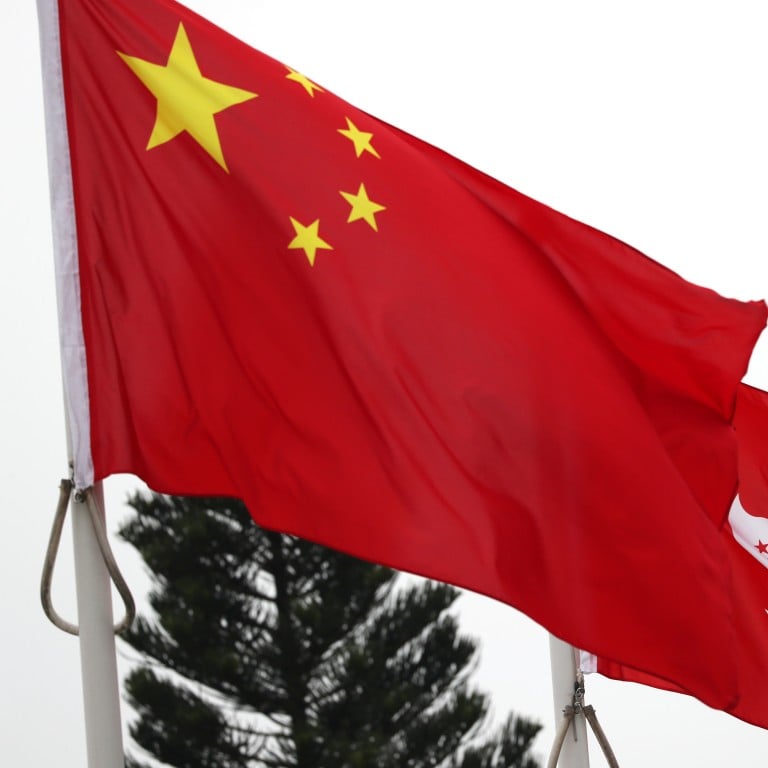
Hong Kong protests to Uygur camps: how Chinese students became a subject of scorn
- Campus confrontations have erupted from Canada to New Zealand as mainland Chinese students react, sometimes violently, to public scrutiny of Beijing’s policies
- Such conflict is likely to persist as Chinese diplomatic missions support robust rebuttals to those who disagree with China’s stance
A creative but controversial meme has been racking up likes on a Facebook page titled SFU Dank Memes, a private group frequented by more than 3,700 students at Vancouver’s Simon Fraser University (SFU).
It features a Photoshopped image of a duplicitous masked operative from the popular video game Team Fortress 2 and an accompanying caption that reads: “Try to figure out who’s the Chinese communist spy at SFU when half the school is Chinese. And worst of all, he could be any one of us.”
The wall has become one of several flashpoints amid an increasingly bitter debate among overseas ethnic Chinese students, which has sparked sometimes testy confrontations emotionally charged by questions of identity, history and political belief.
The bill would have allowed the city to transfer criminal suspects to jurisdictions it lacks a formal extradition treaty with, including mainland China. Authorities have said the proposed law is “dead” but demonstrators are unsatisfied, and the unrest has morphed into a broader anti-government and anti-China movement.
Why Singaporeans don’t get the Hong Kong protests
At the University of Queensland in Brisbane, mainland Chinese students last month came to blows with a group supporting the Hong Kong protests when the latter held a demonstration on campus.
Meanwhile, at the Australian National University in Canberra and University of New South Wales in Sydney, local Lennon Walls have also been vandalised or become the site of verbal clashes.
And in New Zealand, at the University of Auckland, where mainland Chinese students make up about 10 per cent of the student body, a man made headlines last month when he was captured on film pushing a female Hongkonger to the ground after an argument over a Lennon Wall.
Most Chinese students say they stay out of such arguments, but some like Wu feel they are increasingly walking on eggshells.
Hong Kong, mainland students clash at Australian university
Sophie Yang, who also gave a pseudonym, studies public relations at the University of Queensland. She hesitated recently when her tutor asked her to talk about an important characteristic of her culture in front of the class.
Yang, from Jiangxi province, said her first idea had been a presentation on what she saw as the high value Chinese people place on peace and harmony.
But Yang became worried that she wouldn’t be taken seriously by her peers and would be seen as a rabid nationalist or pawn of Beijing. The 22-year-old eventually settled on an anodyne observation about the frantic pace of life in her homeland.
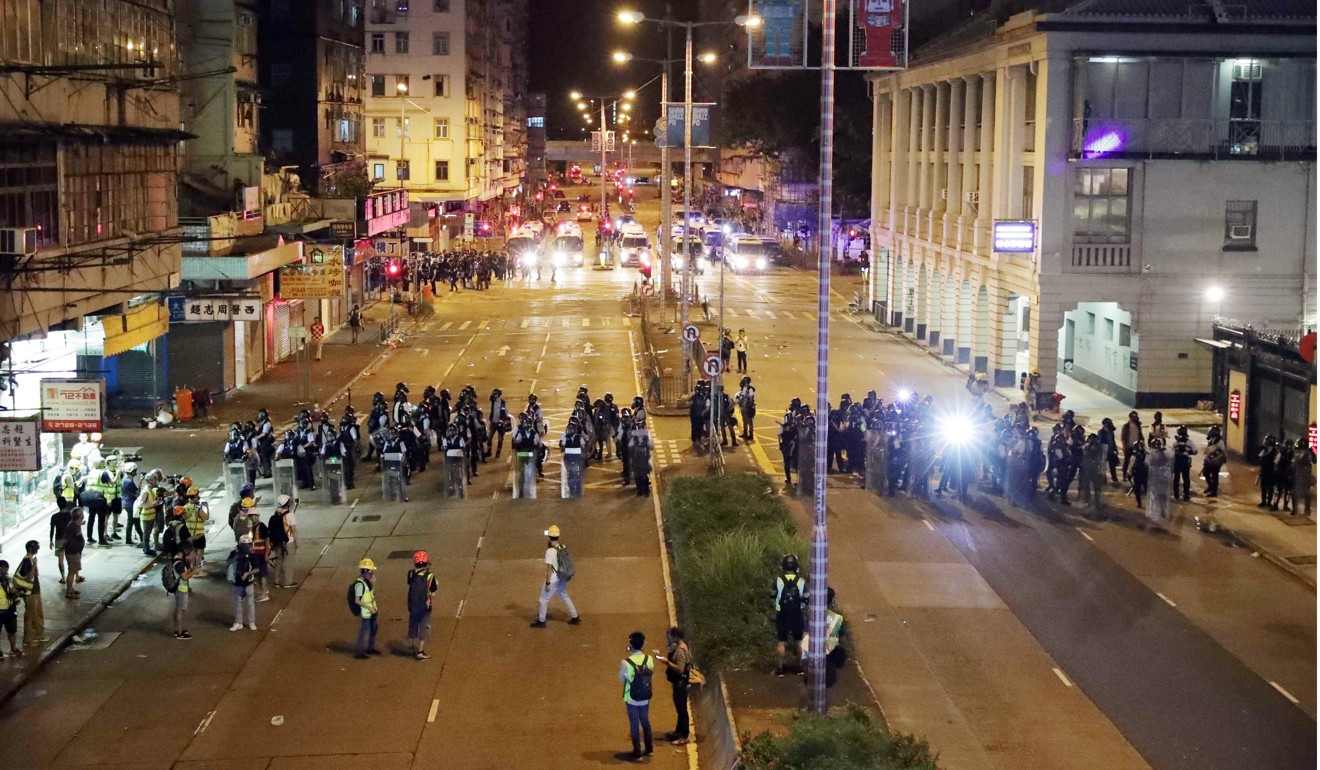
“I don’t know much about politics, and I don’t want to be involved in this kind of political drama just because of my [national] identity,” said Yang, who described herself as apolitical but still upset by anti-Chinese rhetoric flooding her social media feeds.
“I can’t re-choose my identity – that’s where I was born, that’s who I am.”
Yang said the demonstrations at her university had left her feeling caught between warring factions.
“They are forcing people to pick sides,” she said. “You are either pro-democracy, pro-human rights, or you are pro-China. They are putting us in this awkward position. We cannot say we are anti-China because we are from China.”
Here is where the next revolution may take place in Hong Kong
RICH BUT UNLOVED
Canada, Australia and New Zealand, with their natural beauty, clean air and large Chinese diaspora, have long been popular destinations for mainland Chinese youngsters seeking an education overseas. More than 140,000 study at Canadian higher-learning institutions, where they pay an average of C$27,159 (US$20,400) per year in tuition – over four times that of Canadians.
Australia plays host to more than 135,000 mainland Chinese students, and New Zealand almost 30,000.
In Vancouver, one of Canada’s most expensive cities, mainland Chinese students are often perceived as uber-wealthy Lamborghini-driving migrants who lead lavish lifestyles and buy up expensive properties. Yet with all their privilege, perceived or otherwise, they often face difficulties integrating into mainstream society.
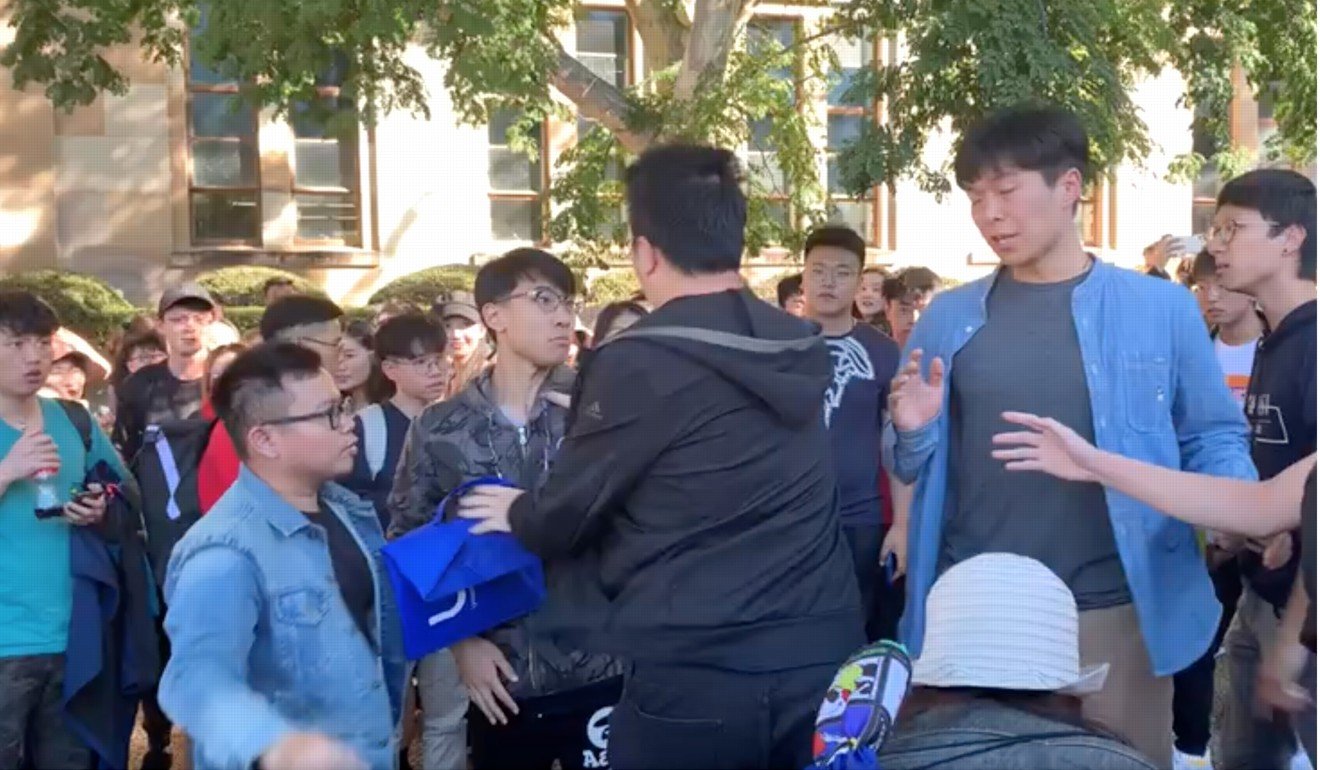
Tung Chan, a Chinese-Canadian who is a community advocate for multiculturalism, said wealthy newcomers were often unfairly assumed to have made their money through corruption.
“Such stereotypes are formed by non-interaction and assumptions,” he said.
“[In Vancouver] the interaction between the non-Chinese and Chinese community is already limited. And interaction between Hongkongers and mainland Chinese is even more so.”
Hong Kong, mainland Chinese students clash at New Zealand university
“There was no conflict between the two groups … but even though both were born to Chinese values and had some commonalities, there was not enough to pull us together, because of language, preferences in food and music, and so on,” Chan said.
The recent campus conflicts have only brought to the fore similar conflicts that have long existed, he added.
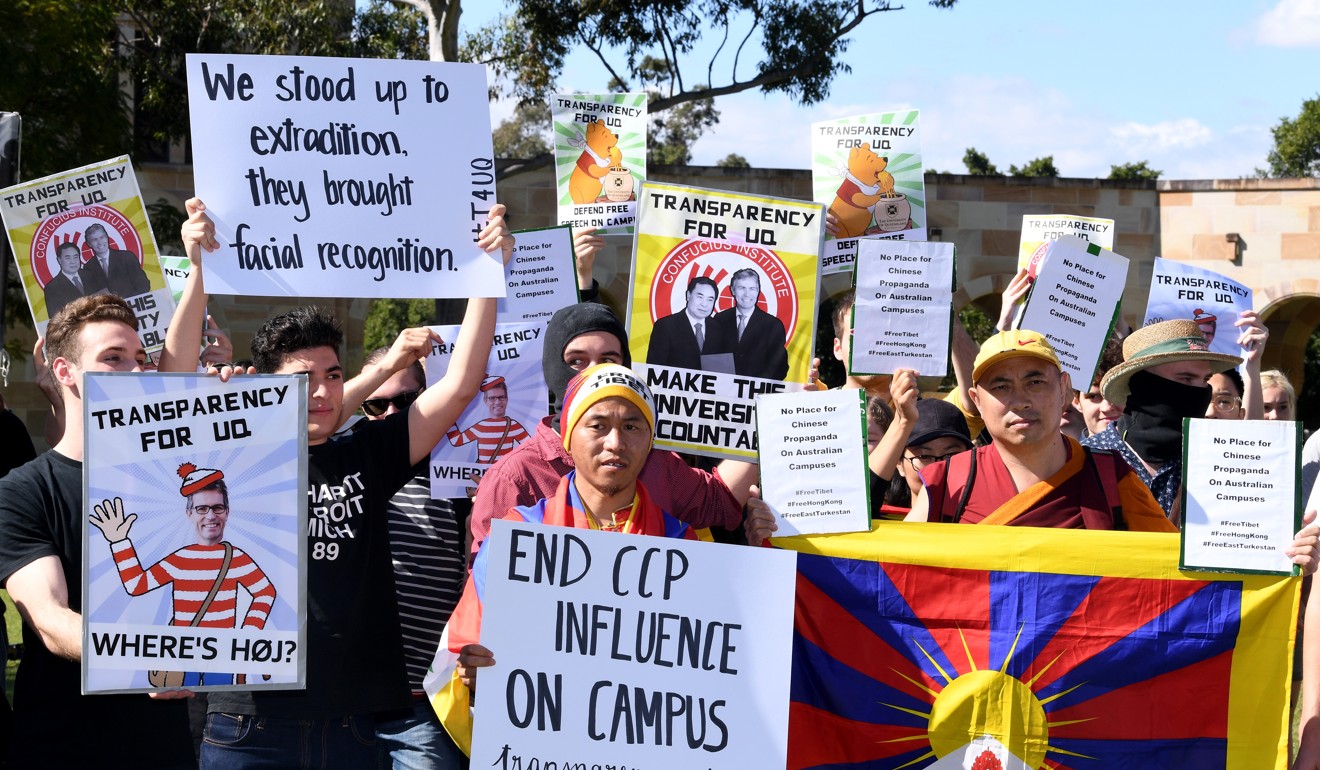
At SFU in Vancouver, Hong Kong student Karen Chu said she had on several occasions overheard expressions of anger from mainland Chinese students on campus.
She recalled one saying “Hong Kong people are pigs”, and calling Hongkongers ungrateful even though China gave them “ample resources and money for them to continue functioning as a city”.
Chu, using another name because of the sensitivity of the subject, said ties between the two groups were being tested. “My friendliness towards mainland students has decreased quite a bit and I will almost certainly not try to befriend any,” she said.
BRIDGE TOO FAR?
For others, the gulf in understanding between cultures is too big to bridge. Rebecca Zhang, who studies English in Toronto, said the mainland’s state-controlled media only portrayed positive images of the country, while the press in the West did exactly the opposite.
“We’re in an awkward position here,” she said of students from the mainland.
“When I go back to China, I can’t relate all the things that happen in Canada because people there can’t understand these experiences I’ve had.”
Gang Li, a China-born scholar and PhD candidate at the University of British Columbia who specialises in mainland Chinese students’ engagement in democratic discourse, said the campus conflicts were a manifestation of a long-neglected divide between different groups.
“[It is] a divide between the students and people in Hong Kong, as well as the divide between China and the West,” he said.
“The underlying issue is about a conflict of values. Hongkongers hold the values of liberal democracies – human rights, freedom of speech, all those things … but the word ‘democracy’ in mainland China has many different meanings, so it’s very hard for mainland Chinese students to have a unified understanding of what democracy and freedom of speech are.”
6 events showing campus conflicts involving Chinese students
Li said most mainland Chinese usually did not experience outright racism in Canadian society, but did at the institutional level. “Vancouver is actually one of the most unwelcoming cities in Canada,” he said.
The region had a long history of anti-immigration policies, Li added, ranging from the Chinese head tax between 1885 and 1923 to the 2016 addition of vacancy and foreign buyers taxes, which increased levies by 15 per cent.
“They definitely don’t like us, but Vancouver has a large number of Chinese and they can’t do anything about it, so they just raise the taxes.”
In Australia, the unrest plaguing Hong Kong has also brought lingering tensions to the surface.
Ma Xianghui, a PhD student at the University of Sydney, said Chinese students had been unfairly painted with a broad brush as spies for Beijing.
“Some of the media say Chinese students are agents of the government,” the 29-year-old Chengdu native said. “That is absolutely wrong. I think this shows very serious disrespect for Chinese students.”
Ma’s name has been changed to protect his identity.
While acknowledging students had the right to challenge Beijing at Australian universities, Ma said he and many other mainland Chinese saw displays of support for the Hong Kong protesters as campaigns aimed at separating the city from China, which they took personally.
“It challenges my understanding of my country and myself,” Ma said. He argued that Australian society should seek a greater understanding of the Chinese perspective.
“I do respect freedom of speech – that is a core value – but another core of Australia is multiculturalism. So in that sense, white Australians should also respect Chinese culture – and unity and unification are a very important part of it.”
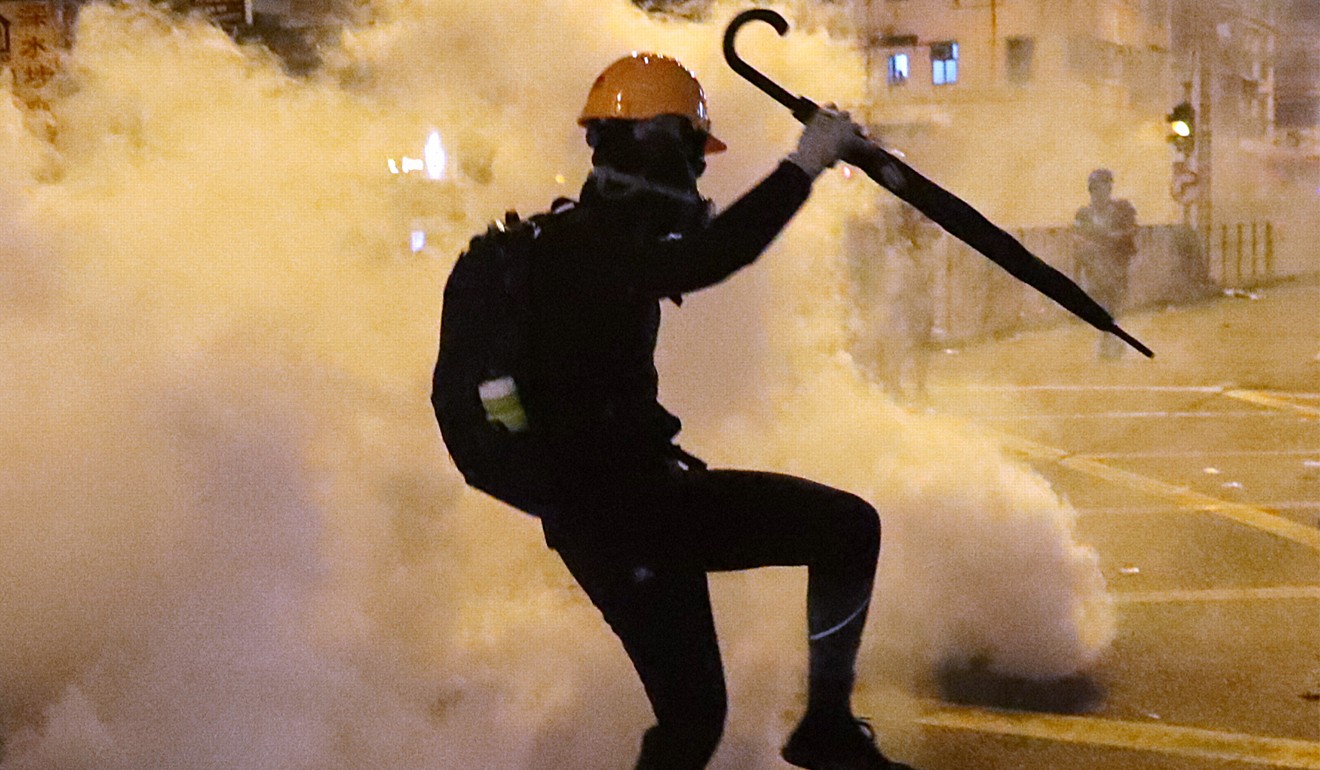
Chinese students in Australia have long grappled with accusations that local universities have lowered academic standards and accepted applicants with minimal English skills to cash in on lucrative international tuition fees, which account for one-third or more of revenues at top institutions such as the University of Sydney and Royal Melbourne Institute of Technology, or RMIT.
It’s a perception even shared by some Chinese, including Tony Yan, a mathematics undergraduate at the Australian National University (ANU).
Singapore becomes an option for Hongkongers amid political crisis
“The thing is, there are so many Chinese, there are good ones, there are bad, and ANU just happened to favour the rich over the talented,” said Yan, who comes from Jiangsu province.
“I came here expecting ANU to be a great university, with great teaching resources, learning opportunities and, of course, people with similar interests. However, many of my courses seem to be lowering their standards to accommodate the incapables.”
‘CHINESE COMMUNIST SPIES’
Mocking memes aside, law enforcement agencies, the media and academics in the West have documented numerous cases of Chinese students allegedly being directed by Beijing.
In September last year, US authorities arrested Ji Chaoqun, a former student of electrical engineering at the Illinois Institute of Technology in Chicago, on suspicion of acting as an “illegal agent” at the behest of China’s Ministry of State Security.
Ji, who pleaded not guilty, stands accused of collecting information about naturalised American citizens originally from mainland China and Taiwan to pass on to Beijing for potential recruitment as spies.
Has Carrie Lam lost Hong Kong in her bid to push through extradition bill?
Although Australia, New Zealand and Canada have yet to launch any comparable crackdown, they are similarly grappling with concerns about migrants being weaponised by Beijing. A Chinese Ministry of Education directive issued in 2016 called for the mobilisation of overseas students as a “positive patriotic energy”.
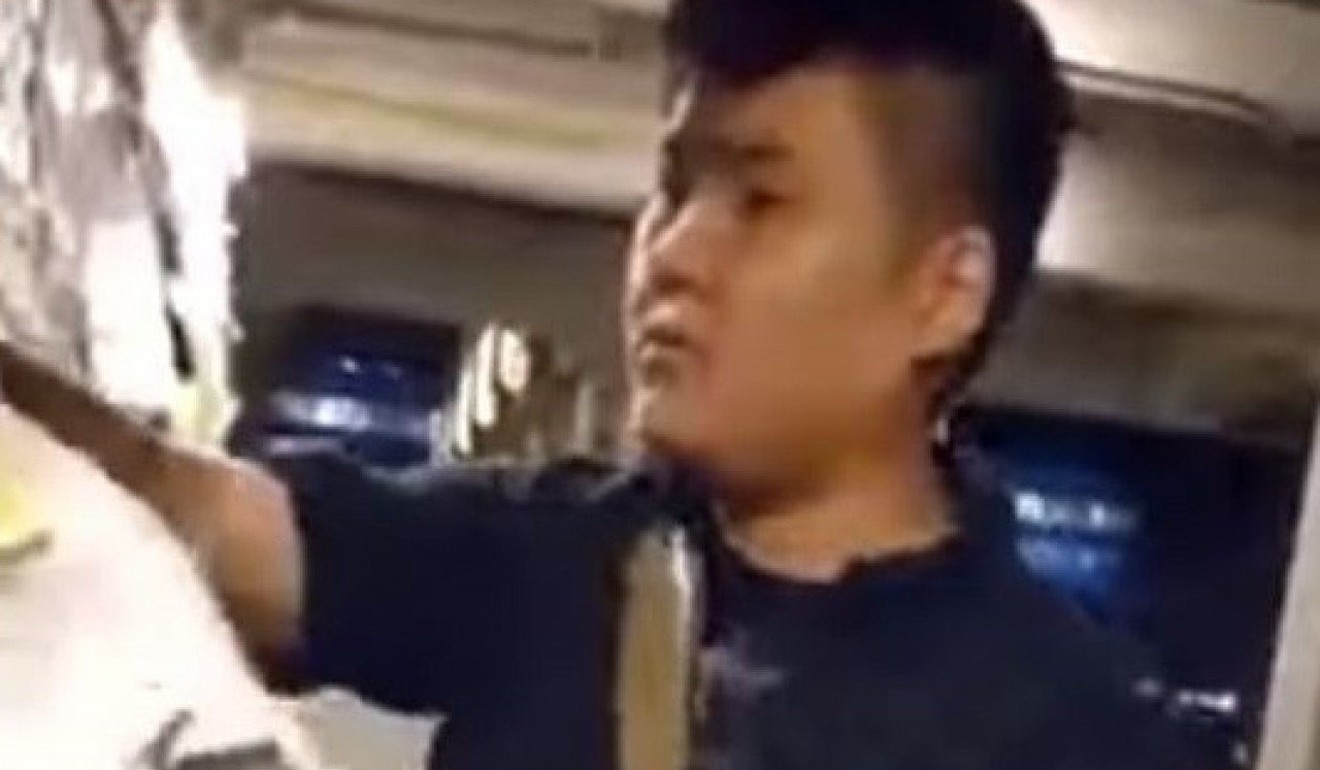
Beijing’s influence is on display through some 150 campus organisations that are chapters of the Chinese Students and Scholars Association (CSSA), some of which receive partial government funding for events.
Examples include attendance at a protest against a visit by the Dalai Lama to the University of California in San Diego in 2017, and the disruption of a talk by a Uygur activist at McMaster University in British Columbia earlier this year.
“They throw parties and provide rides for new mainland Chinese students, but they also serve as a powerful socialising and monitoring function, where new mainlanders learn that they do not enjoy all the freedoms other students at international universities have,” said Anders Corr, a geopolitical analyst who has written about the influence of these student associations on Western university campuses.
“Chinese students must still promote a positive image of China.”
Meanwhile, Chinese diplomatic missions have made no secret of their support for students promoting Beijing’s line abroad.
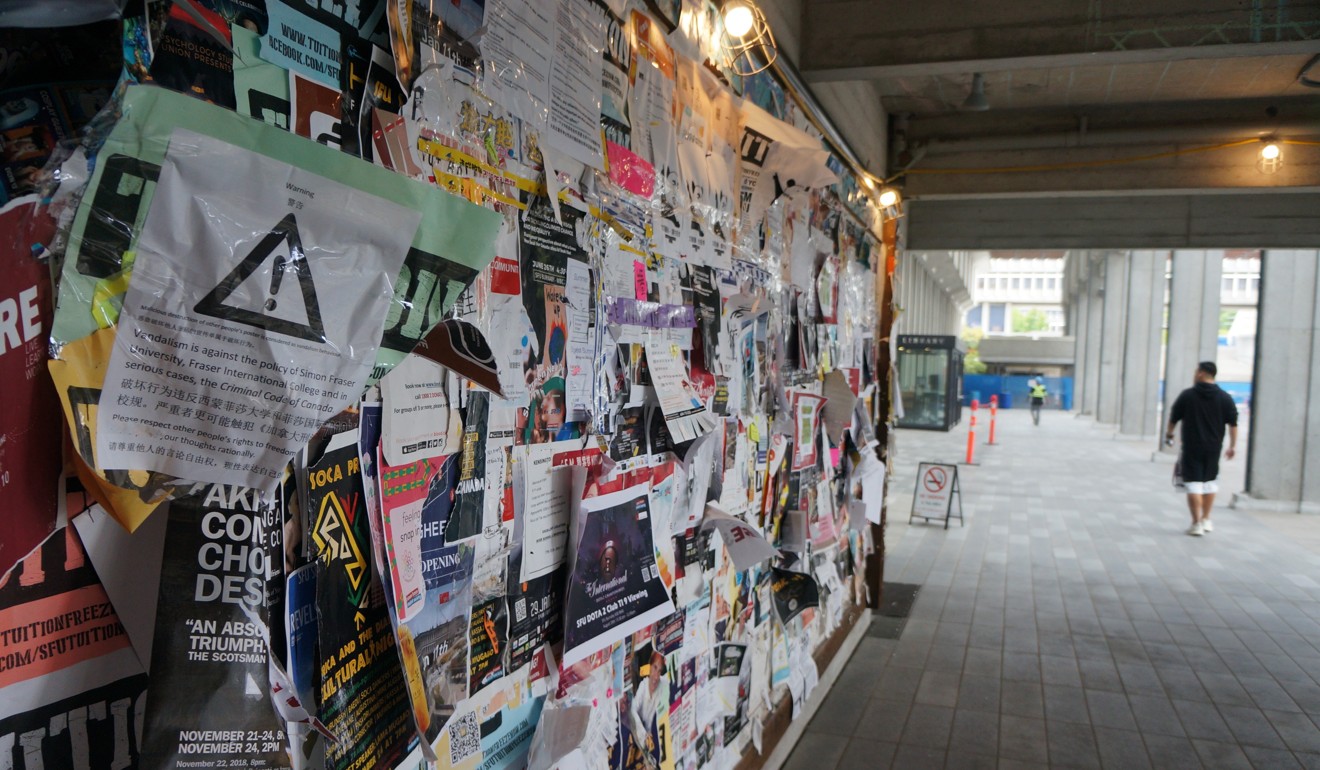
After last month’s clashes at the University of Queensland, the consulate in Brisbane issued a statement in Chinese condemning Hong Kong students for “talk of separatism” and “igniting anger and sparking protests”. It praised counter-demonstrators for their “acts of patriotism”.
In New Zealand, after scuffles at the University of Auckland, the city’s consulate lauded students backing Beijing for their “spontaneous acts and deeds out of their love of China and love of Hong Kong”.
One of those demonstrators had pushed a Hong Kong student to the ground during the melee.
Hong Kong needn’t fear the PLA, even if it is a US-China battleground
Joske, who has co-written a submission to the Australian parliament detailing examples of Chinese influence on campuses, said universities had for too long “tolerated or ignored the Chinese government’s efforts to influence and establish organisations for Chinese students”.
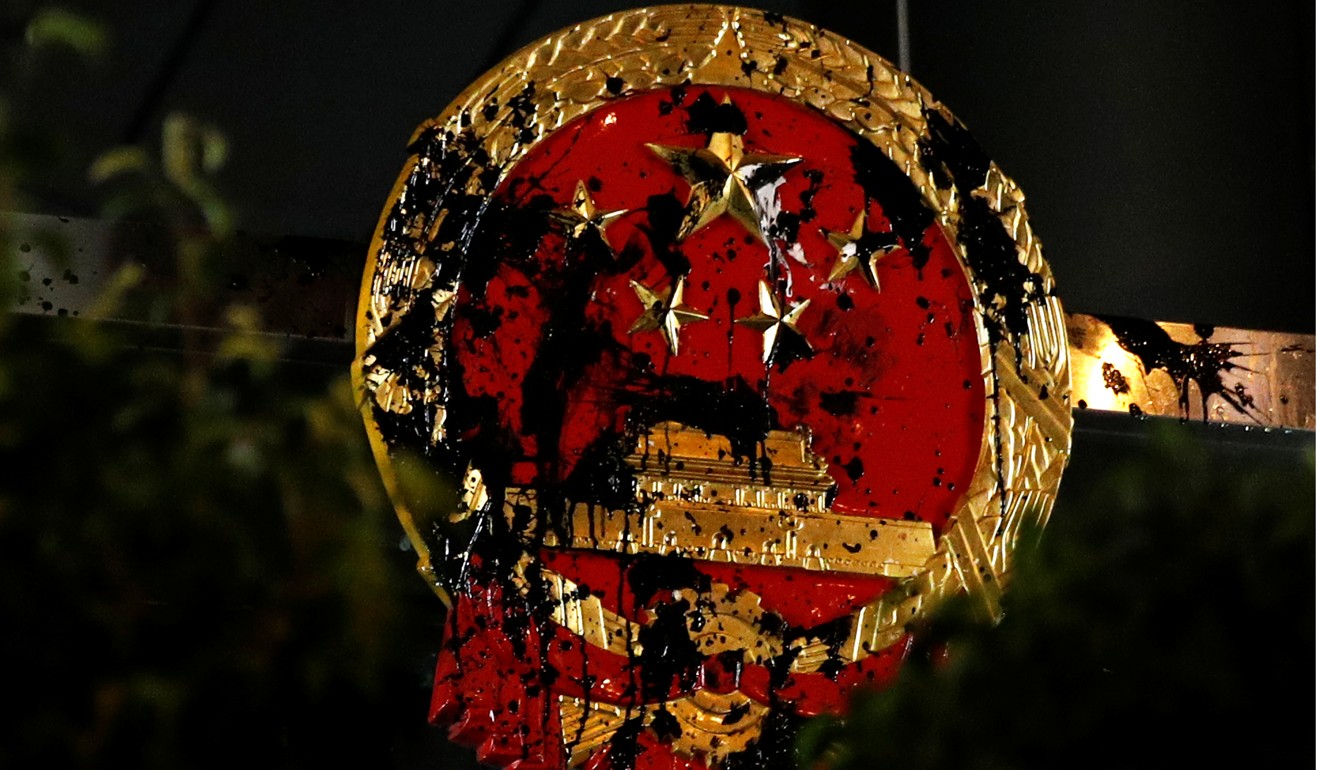
WHERE DO WE GO FROM HERE?
With rising numbers of Chinese going overseas to study, coupled with growing global scrutiny of how Beijing exercises its power, conflicts involving students abroad are likely to persist, some observers say. Others believe the problem will be compounded by a soft stance from universities on freedom of speech.
“For the life of me, I can’t begin to understand why universities have essentially pretended these events did not happen, failing to punish anyone involved,” said Kevin Carrico, a senior lecturer in Chinese studies at Monash University in Melbourne.
“If a group of white students threatened or beat black protesters, it would be a source of outrage. Why do universities look the other way when Chinese students do this to Uygur, Tibetan, Hong Kong or Taiwanese students?”
Portugal: a new home for those who fear Hong Kong’s fate?
Joske, the ASPI researcher, said universities had more work to do in encouraging discussion and dialogue in a “respectful and peaceful way”.
“Universities have tolerated or ignored the Chinese government’s efforts to influence and establish organisations, which appears to be contributing to recent conflicts,” he said. “They should take a strong line on all cases of intimidation or harassment. Students who use violence to silence others should not be tolerated.”
In Vancouver, SFU student Kayli Jamieson said she believed the institution was unlikely to do much to educate the student body on how to engage in healthy discussion.
“I don’t know if much can be done other than possibly hosting an open educational workshop on it. But students must still be open to learning.”
For academics like Li in Vancouver, the challenge of dealing with conflicts involving hot-button topics around China is made ever more difficult by the recent events in Hong Kong.
“My general approach to dealing with these tensions in class is to encourage both sides to exercise critical thinking skills and emotional intelligence when discussing politically sensitive and emotionally charged issues. Students with different views need to bracket their assumptions and bias and try to understand [other] views,” he said.
“To me, one important goal of higher education is to make learners critical, not radical.”
Toronto student Zhang said she had learned never to talk politics with her new friends.
“With Taiwanese and Hong Kong friends, we never talk about it because it’s very sensitive,” she said. “If you start, you’ll never see an end to the argument.”



